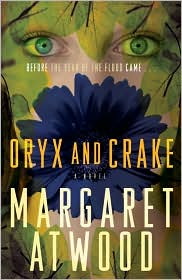 Star Trek: Inception by S. D. Perry
Star Trek: Inception by S. D. Perry
Synopsis
As man expands beyond explored space, the need to find a way to make inhospitable planets hospitable grows greater. One young biologist, Carol Marcus, has a project that she is convinced can reshape planets. She puts together a team of young, committed scientists who dare to dream as she does: of a Federation remade so hunger is eradicated, where every world can be reshaped into a paradise. The belief that all things are possible, that man can strive to conquer space not with force but with science, is shared by James Kirk, a young Starfleet officer and her lover.
Leila Kalomi, a renowned botanist, is looking for a new direction. After hearing about Marcus's project, she applies for a position. She finds Carol's passion contagious, and a chance encounter with the Enterprise's science officer, Spock, convinces her to join Project: Inception.
Four people just trying to find the balance between their careers and their personal lives, trying to make the right choice not just for themselves but for the betterment of all mankind. The choices they make will rewrite the history of the Federation and change forever how man explores space.
Not fair to compare this to Oryx and Crake - an obviously far artier and well-crafted book.... but I'll admit I liked this a lot more. There is even (a bit of) and intersection, since the warning of ecological devastation implicit in Oryx perhaps parallels the ecological concerns of the characters behind the activist group "Redpeace" in Inception.
Be that as it may, this is another "fill in the blanks" book that looks at Trek pre-history as implied by the canonical shows and does a nice job of painting a credible and enjoyable backstory - and along the way create an interesting pro-science science-fiction story.


